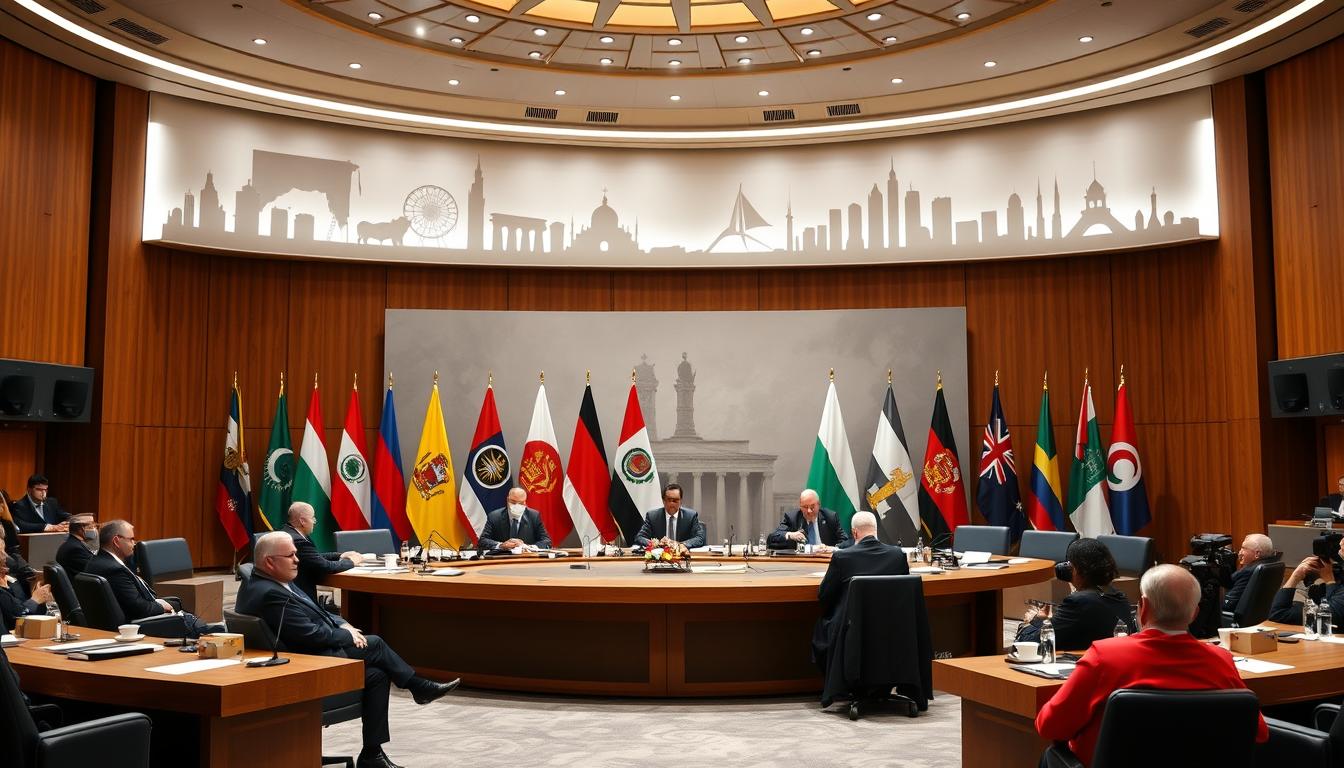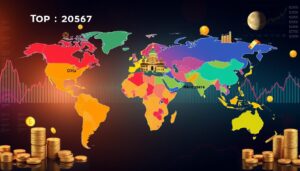Did you know that 83% of people in a recent survey said Xi Jinping is the most influential leader? This shows how big an impact political leaders have on the world. They deal with big issues like climate change, economic gaps, and global tensions.
The top 5 most powerful politicians in the world show their big influence. They guide their countries and shape global policies. Let’s look at what makes these leaders so powerful and their impact on our future.
Key Takeaways
- The influence of politicians significantly affects global dynamics.
- Understanding powerful political figures can provide insights into international relations.
- The landscape of political power is constantly evolving.
- Leaders’ approval ratings often reflect their political effectiveness.
- Political decisions have far-reaching impacts on diverse global issues.
The Definition of Power in Politics
Political power is more than just forcing someone to do something. In political science, it’s studied as a complex idea. It looks at how it’s made and its impact on people’s actions and beliefs.
It shows how power can come from things like money, military strength, and diplomatic ties. Knowing what political strength means helps us see how it can show up in different ways.
Experts say there are different kinds of power. They talk about soft power and hard power. Soft power uses charm and persuasion, while hard power uses force.
This shows how politicians use various strategies to get what they want. French and Raven found five main types of power. These are legitimate, referent, expert, reward, and coercive power.
Legitimate power comes from a person’s role or position. Referent power comes from being liked and respected. Expert power is about having special skills.
Reward power is about giving things that people want. Coercive power is about using fear to make people do things.
Over time, how we see political power has changed. In the 19th century, politicians used printed media to talk to people. Then, in the 20th century, TV ads became key in politics.
Now, social media is changing how power is used in politics. These changes show how political power is always evolving and is very important for how governments work.
Factors That Determine Political Power
Many things shape how much power a politician has. Knowing about factors of political influence helps us see how power works in politics. Key things include money, what people think, party ties, and how a country relates to others.
Money matters a lot for a leader’s popularity. Using money well can make people support a leader more and improve how well they govern. But, when money is scarce, people often get unhappy, which can make leaders less powerful.
What people think is very important too. A big 63% of adults believe most Americans want a working political system. This shows how important public opinion is. If leaders make policies that meet people’s needs, they can strengthen their position.
Being part of a party also affects a politician’s power. In the U.S., the divide between Republicans and Democrats shows how hard it can be for politicians. Most adults think these parties focus on fighting rather than solving problems. This division can make it hard for leaders to work well and can change how people see their effectiveness.
How a country relates to others is also key. Being good at global politics can make a leader more trusted at home. Leaders who do well on the world stage often gain their people’s trust, which boosts their determinants of political authority.
The following table summarizes key factors contributing to political power:
| Factor | Description | Impact on Political Power |
|---|---|---|
| Economic Resources | Financial stability influences governance capability and public sentiment. | Increased resources can lead to higher popularity and effective governance. |
| Public Opinion | Citizens’ views shape politicians’ policies and access to support. | A well-aligned public can enhance a leader’s authority. |
| Party Affiliation | Partisan loyalty affects collaborative governance and policy discussions. | Divisions can lead to ineffective leadership and diminished public trust. |
| International Relations | Engagement with foreign nations influences domestic perceptions. | Successful diplomacy enhances credibility and authority at home. |
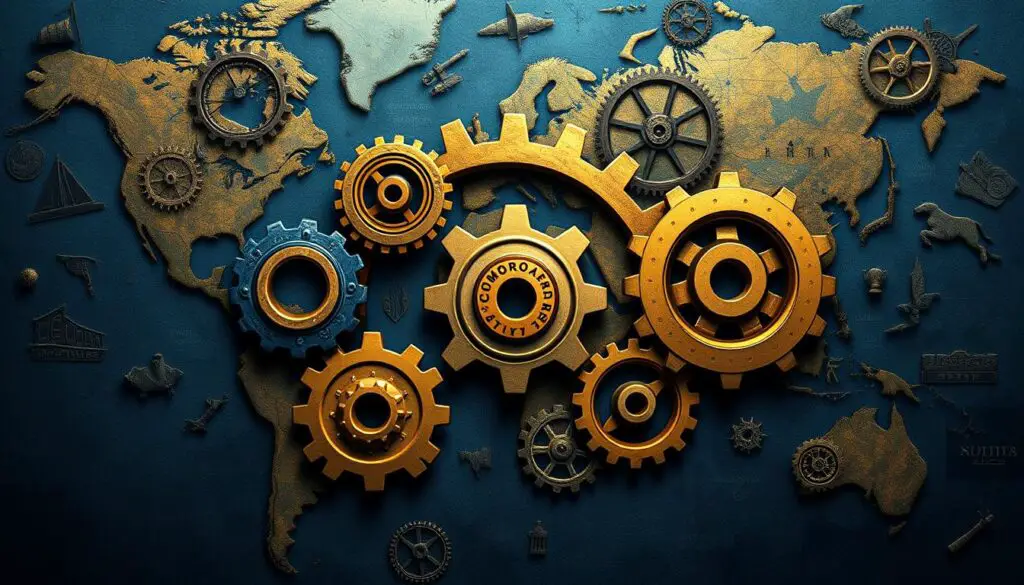
These elements work together in complex ways, affecting a politician’s power. By looking at them through a political strength analysis, we can understand how they shape political power.
Global Influential Leaders Shaping Our Future
Across the globe, influential government leaders are guiding their nations and the world towards the future. They support various causes, like fighting climate change and promoting social fairness. Their actions affect policies far beyond their borders. Leaders like Nelson Mandela and Mahatma Gandhi set the standard for future leaders.
Mandela fought for justice and equality with all his might. Gandhi used nonviolent methods to bring about change. Their work has inspired leaders today.
Today’s leaders follow in their footsteps. Martin Luther King Jr. used his words to fight for civil rights. His way of connecting with people and sharing his vision is an example for new leaders.
Abraham Lincoln showed how empathy and strong communication can make a leader. Winston Churchill led during tough times with courage and humor. His belief in his people was unshakeable.
Leaders like Steve Jobs and Hap Klopp have changed their fields with innovation. Jobs changed technology, and Klopp made outdoor gear better. Their ideas have inspired many.
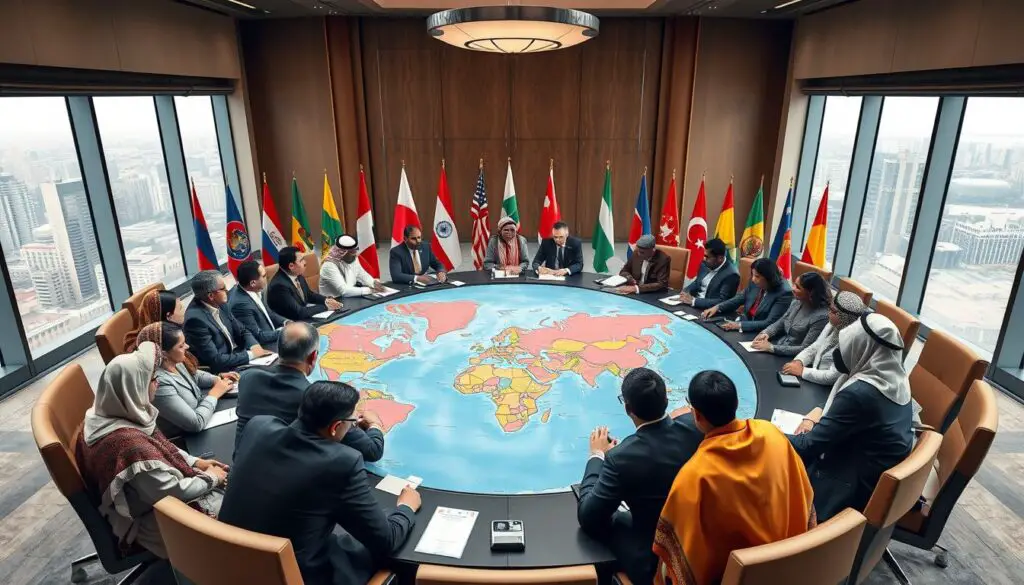
These leaders show how important it is to be adaptable and have a vision. Their choices are shaping the world and tackling big issues. They mix old values with new ideas, setting the course for the future.
| Leader | Key Traits | Areas of Influence |
|---|---|---|
| Nelson Mandela | Resilience, Justice | Human Rights |
| Mahatma Gandhi | Nonviolence, Discipline | Social Change |
| Martin Luther King Jr. | Intelligence, Creativity | Civil Rights |
| Abraham Lincoln | Empathy, Communication | Political Strategy |
| Winston Churchill | Courage, Humor | Leadership during Crisis |
| Steve Jobs | Visionary, Innovation | Technology |
| Hap Klopp | Entrepreneurial Spirit | Outdoor Industry |
Looking ahead, the qualities of today’s leaders will shape tomorrow’s leaders. Their actions show us the big impact good leadership can have on our world.
Top 5 Most Powerful Politicians in World
The world’s political scene is filled with leaders who greatly affect global ties. We’ll look at the top political leaders and their roles. They include Vladimir Putin, Xi Jinping, and Angela Merkel, who show how power can be used in different ways. Political experts often talk about their leadership styles and strategies, making them the most influential politicians globally.
Analysis of Their Political Influence
Vladimir Putin is a key player in world politics. He’s been ranked as the most powerful person several times. This is due to his huge wealth of $200 billion and a strategy that focuses on control and strength. Xi Jinping, with a net worth of $1.2 billion, has also made big waves. His leadership of China and the Belt and Road Initiative show his big plans for global trade.
Angela Merkel is a major figure in European politics. Even though she’s no longer Chancellor, her impact is still felt. She managed economic and immigration issues in Europe well, showing her lasting political power.
Impact on Global Politics and Relations
Donald Trump and Joe Biden show the different ways leaders can lead. Trump made big changes in global policies and alliances with his bold moves. Biden is now focusing on fixing relationships that were damaged before. They both show how what happens at home can affect the world.
Looking at the rankings from 2009 to 2018 shows how power has shifted. More leaders are now recognized as powerful, showing a change in the balance of power. Figures like Warren Buffett and Elon Musk, known for their wealth, also show how politics and economics are linked.
| Politician | Net Worth | Political Influence | Global Impact |
|---|---|---|---|
| Vladimir Putin | $200 billion | Consistently ranked most powerful | Direct influence on global power politics |
| Xi Jinping | $1.2 billion | Strong advocate for global initiatives | Significant role in international trade |
| Angela Merkel | Not publically disclosed | Key figure in European politics | Influence in EU policy development |
| Donald Trump | Not publically disclosed | Controversial yet impactful policies | Shifts in US foreign relations |
| Joe Biden | $9 million | Reviving international partnerships | Focus on climate change and democracy |
High-Ranking Government Officials and Their Roles
High-ranking government officials are key to their country’s political power. They include cabinet members, ambassadors, and advisors. These people play a big part in making decisions and leading the country.
They have special roles that help them handle complex political situations. Cabinet members look after different areas of government. Ambassadors work with other countries, and advisors help leaders make informed choices.
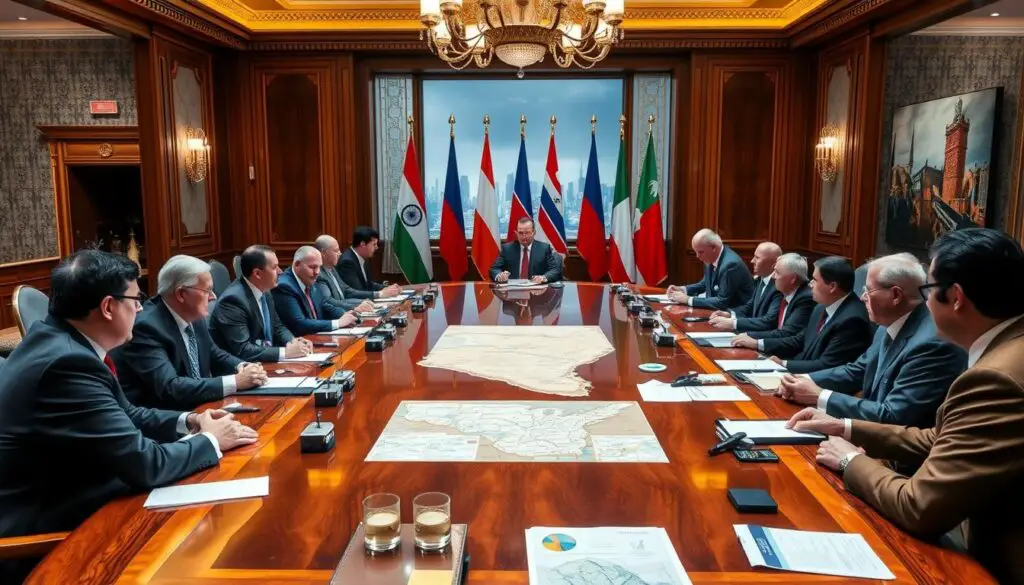
High-ranking officials work closely with top leaders. Together, they make the government run better and tackle challenges at home and abroad. This teamwork is vital for a stable and strong political system.
Recently, the roles of these officials have changed a lot. Political events have shown how important they are in shaping government policies.
The Rise of Political Figureheads in Recent Years
Today, politics is changing fast, with new leaders stepping up to tackle big global issues. They focus on things like climate change, social justice, and making the economy better. These leaders are changing how politics works by connecting with people and starting new projects.
Case Studies of Notable Political Leaders
Some leaders have really made a mark with their work in big movements. They’ve changed their countries and even the world. Here are a few examples:
| Leader | Country | Key Focus | Impact |
|---|---|---|---|
| Barack Obama | USA | Healthcare reform and climate action | Increased global awareness of climate change |
| Vladimir Putin | Russia | Geopolitical strength | Maintained influence over Eastern Europe |
| Jacinda Ardern | New Zealand | Social justice and mental health | Strengthened community support initiatives |
| Greta Thunberg | Global | Climate change activism | Mobilized youth worldwide for environmental action |
| Michelle Obama | USA | Health and wellness initiatives | Increased awareness on childhood obesity |
These leaders show us how politics is changing. They focus on working with the public and taking action. Their work tackles big challenges, showing us a new way of leading on a global scale.
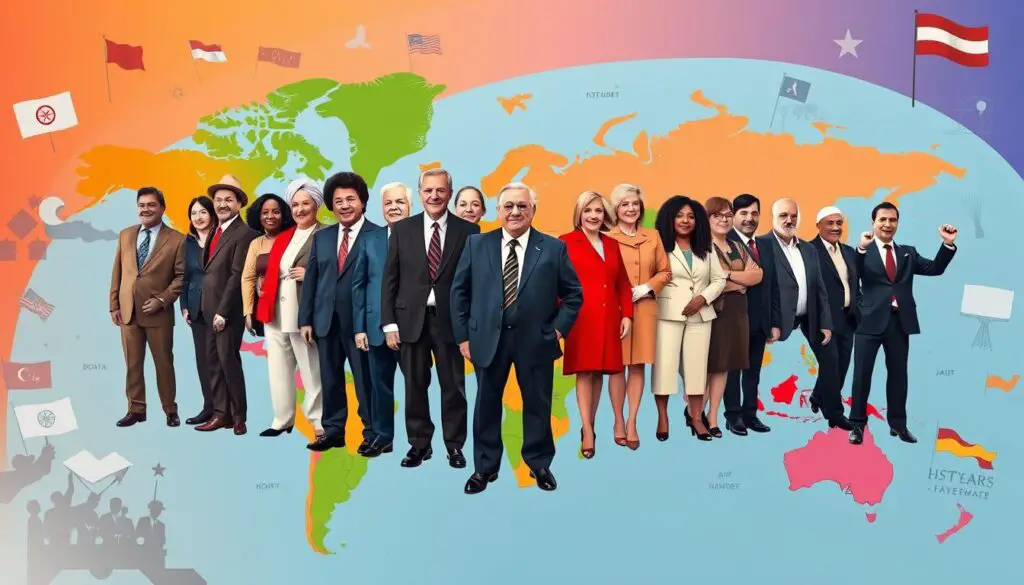
The Role of Social Media in Political Influence
Social media has changed how politicians talk to us, making digital politics different. Politicians now use Twitter, Facebook, and Instagram to talk directly to us. This has changed the way they influence us.
These platforms make it easier for politicians to connect with voters. But, they also bring big challenges. False information can spread fast, changing what people think and causing big debates. Many Americans believe social media hurts democracy.
A big 64% of Americans think social media makes people more divided in their political views. The worry is that false information can be spread easily.
Some political campaigns have used social media well. For example, Bill Clinton in 1992 appeared on *The Arsenio Hall Show*. This made him seem more relatable. Barack Obama in 2008 used social media to get support from people everywhere.
Now, more people are getting involved in politics online. Blogs and online fundraising tools help citizens make their voices heard. Citizen journalists share news that big media often misses.
This shows social media can be a powerful tool. But, it can also be used to manipulate people. The rise of online campaigns brings both good and bad changes.
In short, social media has opened new ways for people to engage in politics. But, it also brings new challenges. The balance between connecting people and dividing them is always changing in politics.
Conclusion
Looking into political power shows us its wide reach, beyond just government walls. Leaders shape policies and global events, affecting our daily lives. Their choices show us how important it is to balance power with accountability.
This balance ensures leaders work for the greater good and listen to society’s needs. It’s key to the future of political leadership.
Thinking about political influence, we see how important it is to watch over our leaders. The stories of famous politicians teach us about past governance and how to face today’s challenges. They remind us that with power comes great responsibility.
At the heart of political power is the mix of personal goals and civic duties. As citizens, we play a big part in shaping the future. By thinking deeply about politics, we can make a positive change in society.
With careful thought, we can help create a world where leaders focus on everyone’s well-being. This leads to a more fair and equal society for all.

